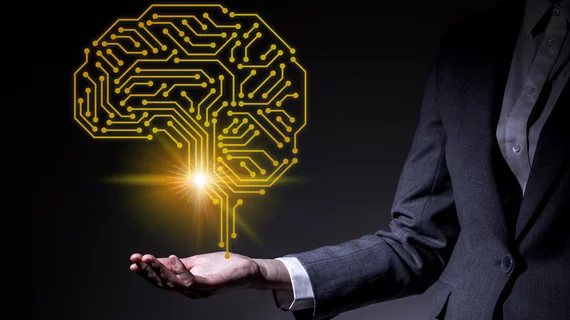AI challenges radiologists at detecting breast cancer
An AI approach developed by Dutch researchers performed similarly to radiologists at detecting breast cancer, according to a multi-center, multi-dataset study published March 5 in the Journal of the National Cancer Institute.
The researchers looked at 29,000 readings broken down into nine datasets, each containing digital mammography (DM) exams read by a total of 101 radiologists. The AI—trained, validated and tested on more than 9,000 mammograms with cancer and 180,000 without abnormalities—performed better than radiologists.
Specifically, it gained a 0.840 area under the ROC score compared to the 0.814 achieved by the radiologists—a higher mark than 61 percent of the 101 interpreters, wrote Alejandro Rodriquez-Ruiz, MSc, of Radboud University Medical Center in the Netherlands, and colleagues.
Additionally, the AI system achieved a higher sensitivity than 55 of 95 radiologists, but its performance was “way lower” than that of the best radiologist, the authors noted.
“Our results clearly show that recent advances in AI algorithms have narrowed the gap between computers and human experts in detecting breast cancer in digital mammograms,” the researchers added. “The large and heterogeneous population of cases used in this study shows that our findings might hold true across different lesion types, mammography systems, and country-specific practices.”
One of the most important takeaways from their research is the possible positive effect of an AI algorithm in regions with less experienced radiologists, the authors argued.
“One of the biggest potential benefits lies in the possibility of using such a system in countries that lack experienced breast radiologists, which might, for instance, impede the development, expansion, or continuation of screening programs. In these situations, AI could be used as an independent, stand- alone first or second reader,” Rodriquez-Ruiz et al. wrote.
The results can confirm the AI system is on-par with an average screening radiologists, the group wrote, but there are still many questions left to be researched.
“AI that functions at the level of an expert radiologist for breast cancer detection in DM images might herald a change in the breast health-care workflow, whether in a screening or clinical setting. Yet we still need to determine the optimal integration of such a system in the breast-care pathway prior to assessing the final impact that this type of AI technology can have on patient care.”

